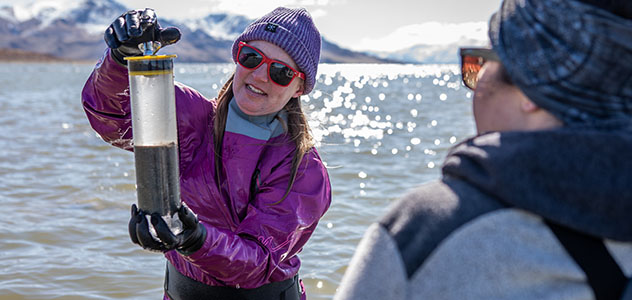Studying Environmental Science at Weber State
Weber State’s environmental science program prepares students to meld the life and physical sciences to assess and protect environmental quality, ecosystem functioning and human health. If you have a passion for the environment and want to make a difference for the long-term viability of ecosystems and human communities, consider this degree. Learn more about our program.
Environmental Science Highlights
This program provides the opportunity to choose from a broad suite of courses across all departments within the College of Science — Botany & Plant Ecology, Chemistry & Biochemistry, Earth & Environmental Sciences, Mathematics, Microbiology, Physics & Astronomy, Zoology — as well as from relevant courses in departments across campus including Economics, Geography and Sociology. All these fields are central to environmental protection.
An environmental scientist is a problem solver who works on complex issues such as:
- Climate change
- Natural resource management
- Sustainability
- Ecosystem conservation
- Environmental regulation
Our majors learn to view and interpret the Earth as a complex system that supplies the requirements and resources for viable natural ecosystems and healthy human communities. This learning is set within the context of challenges facing society, like natural hazards, pollution and resource scarcity.
- Dr. John Mull is the director of the environmental science program and a student advisor. Contact Dr. Mull on the Zoology Faculty and Staff website.
Visit the Environmental Science office, co-located with the Center for Science and Math Education in room 204 on the second floor of Tracy Hall (south side, upstairs from Starbucks).
Watch: Environmental Science at WSU
Beyond the Classroom
This program involves collaboration between faculty and students. All science majors have access to outdoor “natural laboratories,” well-equipped labs, opportunities to do undergraduate research, student organization events and extracurricular activities. Faculty and staff provide a breadth of expertise spanning the broad field of environmental science. We have extracurricular activities through the Sustainability Practices & Research Center (SPARC) and Environmental Ambassadors programs, and opportunities for undergraduate research, internships and volunteering are also available.
